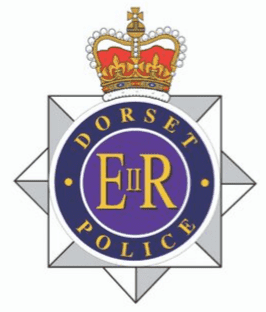A day in the life of a detective constable: Caroline Anderson, South Yorkshire Police
Wednesday 9th November 2022
Caroline Anderson joined South Yorkshire Police via Police Now’s National Detective Programme in January 2021. She was recently nominated for Student Officer of the Year in her force, for her proactive approach to training, her engagement with Police Now, and for her work to tackle Violence Against Women and Girls (VAWG) alongside her force colleagues.
As part of Investigator Week of Action 2022, she tells us what it’s like working as a detective constable and offers advice to others in the service or those considering a career in policing.

Why did you decide to train as a detective constable on Police Now’s National Detective Programme?
I have had a somewhat unusual journey into South Yorkshire Police (SYP), having specialised in music before coming across Police Now’s programme.
I grew up in Northern Ireland but moved to England to study music at the University of Huddersfield and ended up working as a secondary school music teacher. Working as a teacher in a relatively deprived area was my first real experience of dealing with vulnerability and safeguarding children. I had students who were in the care system or often went missing from home, and I tried to support them and make a positive impact on their lives the best I could.
I wanted to take this further, and I was looking for a new role that would be challenging and allow me to make a difference in society. That’s when I came across Police Now’s programme, which would allow me to train as a detective and investigate serious criminality from the very start of my policing career. Police Now’s mission and its emphasis on diversity and inclusion also spoke to my personal values; I was keen to be part of an organisation that actively drives positive social change.
What does a day in the life of a detective constable look like?
Every day in the Criminal Investigation Department (CID) is different, so it’s hard to describe an average day. It depends what investigation you’re working on and what new cases come in. Some days you may be interviewing a prisoner, collating crime scene evidence, or taking victim or witness statements. Other days you might be working with partner agencies to implement safeguarding measures for vulnerable members of the community or working with the force’s domestic abuse team. Often, cases are not as clear cut as they might first appear. You must look at all the sides of a story and be thorough in your investigation.
We work to secure justice for victims of crime, prevent repeat offences and support those who need us the most. We do have to work hard to build trust and rapport with victims of crime and other members of the community. For me, seeing someone go from not wanting to work with the police to fully supporting our investigation and getting a positive outcome in court is one of the best parts of the job. Knowing I am making a positive impact on someone’s life and contributing to building public confidence in policing this way is incredible and very rewarding.
Can you tell us about a case you have worked on or a piece of work you are particularly proud of?
There are a lot of cases that I have worked on in the short time I have been in force. I recently worked on an intense investigation, which was prompted by a serious safeguarding issue that my colleagues from our Firearms and Response units attended. It was a very difficult case and we worked extremely hard to collate evidence in the immediate aftermath.
I can’t talk too much about it while proceedings are active but thanks to our work two people have been charged with two counts of kidnap, two counts of false imprisonment, two counts of arranging or facilitating the travel of another person with a view to exploitation, and a charge of Section 18 wounding.
Working on something like that was physically and mentally exhausting but knowing that we were able to support the victim and progress the investigation makes it one of the proudest days of my career so far.
I’m also proud to have recently been nominated for Student Officer of the Year. I received the nomination for proactively seeking experiences within force (including in the Major Crime Unit, Neighbourhood Policing Teams, and Response team), working with Police Now’s leadership team as part of their national impact committee, and for volunteering my time to engage in SYP’s ‘No More’ media campaign – part of the national campaign to eradicate Violence Against Women and Girls (VAWG). Though it’s not the reason I do the job, receiving the nomination and being recognised by my colleagues definitely put a smile on my face.
How do you ensure you look after your wellbeing in such a demanding role?
That’s a tricky question! As a detective constable, we do see a lot of awful things. In some ways you get used to it but there are always cases which stick with you.
Personally, I’ve benefited from working on great teams and being around colleagues who really support one another. In South Yorkshire Police we have a wide range of support available (my personal favourite being when the Oscar Kilo wellbeing dogs visit!). My advice to other officers would be to put aside time to reflect on what you’ve experienced that day and process how you’re feeling. It’s important to recognise when you’re tired or when you do need that little bit of extra support and it’s okay to reach out to your colleagues or friends and family. Trying to prioritise quality time and ensuring you actually do rest on your days off is really important too.
When I first joined the force, I was sometimes conscious of being a woman in a predominantly male environment and I wanted to act tough and not show any vulnerability. But I have never felt that my team have treated me any differently for being a woman, and the respect that they show me definitely helps with my personal wellbeing. I’d encourage other officers to remember that when they’re working in a team, because your actions and the support you show one another does make a difference.
Do you have any other advice for someone considering a career in policing?
My advice would be to go for it. Joining Police Now’s National Detective Programme and working in South Yorkshire Police is the best decision I’ve ever made.
There is a lot of pressure as a detective constable and it’s a challenging role, but really putting in that hard work and seeing the positive results is what makes it one of the most rewarding careers in the world.
Police Now’s programme is very demanding but the academy training, the support in place and the opportunities that have been afforded to me have been brilliant. I don’t think people realise just how much variety there is within the policing sector until they join; I’ll definitely never be bored or lacking in opportunities and I can’t wait to see where my career takes me next.
Applications to Police Now’s National Detective Programme are now open.






